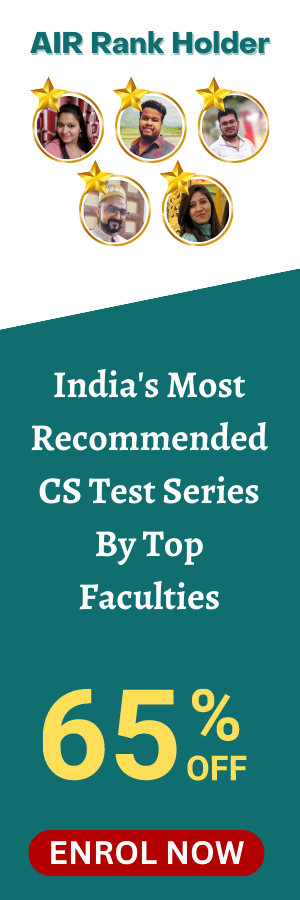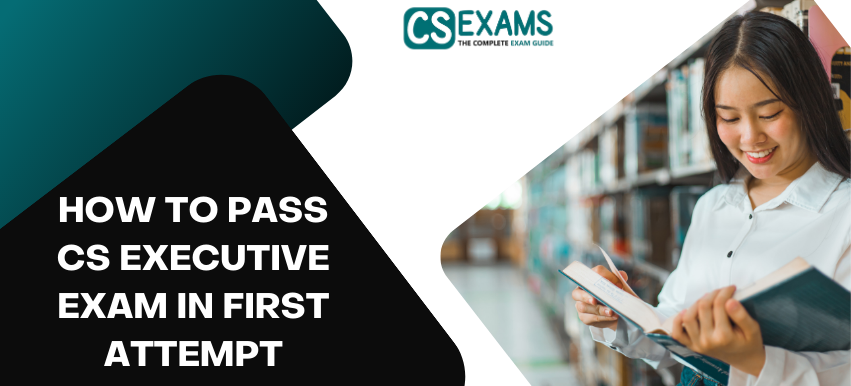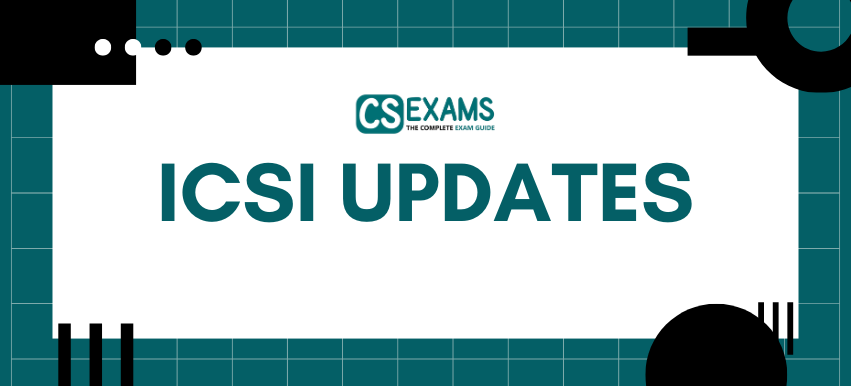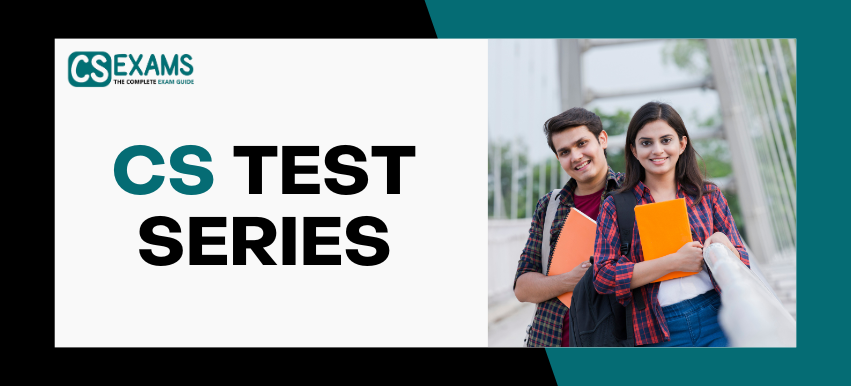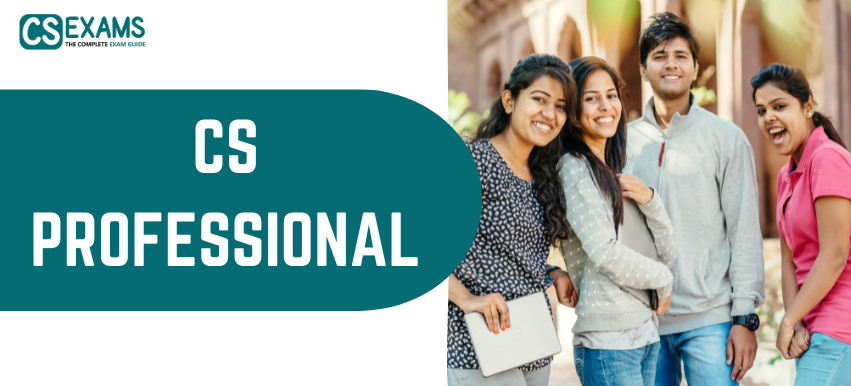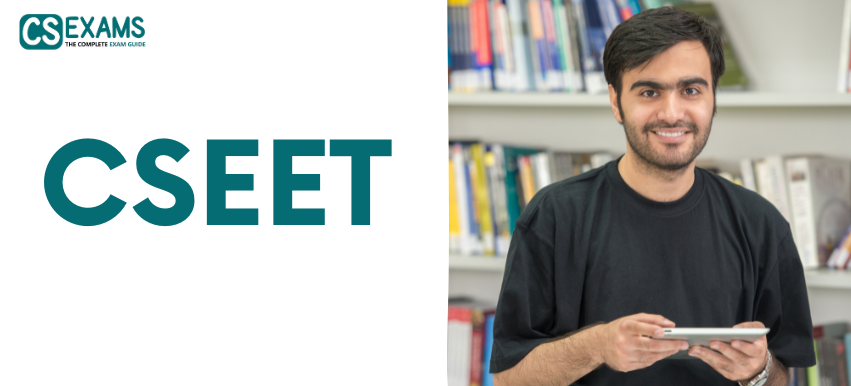The second level of the Company Secretary (CS) Course examination is called CS Executive. There are two modules, each with four papers. A student might choose to take the examinations for both courses at once or for just one module separately. Three of the eight papers are MCQ-based.
Given the intricacy of the subject, CS executive exam cannot be prepared for at the last minute and instead demand preparation throughout the year. Both categories can be eliminated in one shot with good time management and thorough planning. The following are some exam-clearing strategies:
How to Pass CS Executive Exam
-
Setting a daily goal and having a clear plan to reach it is essential to clear CS Executive. It is very important that you make a study schedule according to your abilities. If you are not able to make one for yourself then CS Exams Test Series will provide one for you based on your needs.
-
The syllabus includes a lot of theoretical ideas and regulations that can be grasped by reading frequently and learning the specifics of the rules. Going through the syllabus is one way to make sure that you will be able to pass CS Executive exam.
-
One only has nine months to get ready for CS Executive after passing CSEET. Hence, a maximum of one month should be given for each subject. You can also do 3 times revision of all the subject 3 times with CS Exams Test Series.
-
Along with their studies, students should write their own brief notes to clear CS Executive exam because these will be useful for the second, third, and final revisions on the exam day.
-
Attempting test series’ questions is crucial because it assesses one's subject knowledge in addition to writing speed and time management. Also, a student will understand the proper format for writing responses on a test of this caliber. It is the best way to understand how one can pass the CS Executive exam.
-
MCQs are going to take a lot of practice. Also, it is important to remember that each incorrect answer carries a penalty. So, going through test papers from CS Exams Test Series and other types of previous exams may only show to be one of the most effective ways to get ready to pass CS Executive exam.
How to prepare for subjects of CS Executive exam
Paper 1: General Laws, Interpretation, and Jurisprudence
There are 17 separate statutes in this syllabus. When studying, a student should be sure to focus on just one Act at once. They should avoid studying two Acts at once or pausing in the middle of one Act to move on to another. Also, special emphasis should be paid to memorizing the precise name of the Act, its year of enforcement, as well as a few crucial legal jargon and expressions utilized.
Paper 2: Business Law
This main Paper is broken up into three sections: Part A is worth 50 marks, Part B is worth 40 marks, and Part C is worth 10. Part B is more straightforward and less theoretical than Part A, which has numerous chapters. With the fewest chapters, Part C is thought to be the easiest. Students should prioritize Part B, Part C, and then Part A based on grades and a time-benefit analysis. Also, it is advisable to practise writing replies because the exam will likely require more expert responses, particularly for this subject.
Paper 3: Establishing Business Entities and Termination
There are three sections to this paper as well. There are 12 chapters in Part A for 40 points, 6 in Part B at 35 points, and 3 in Part C worth 25 points. Given that Part B and Part C combined account for 60 marks and 9 chapters, they can be given higher attention. Students can also create flowcharts for the steps and procedures in the procedural chapters in Part B, which will be useful for revision.
Document 4: Tax Legislation
There are two sections to this essay. Part B is for indirect tax, and Part A is for direct tax (both worth 50 marks) (50 marks). Many students believe indirect tax is simpler than direct tax. GST is worth 45 marks in indirect tax, and customs law is worth 5 points. The study strategy should be adjusted in light of the fact that the exam will consist of 100 multiple-choice questions (MCQs), with more emphasis being placed on the specifics in the study material and less on the format and methods for answering lengthy questions. Frequent MCQ practise is required for this paper because the tests will place a high value on how quickly you can answer the questions.
Paper 5: Management and Corporate Accounting
The paper is MCQ-based, thus logic and conceptual clarity are prerequisites. This paper is broken into two sections as well: both Part II Managerial Accounting and Valuation and Part I Corporate Accounting (both worth 60 points) (40 marks). Completing Part II first will enhance their confidence because it is relatively simpler for pupils to understand, takes less time, and is simpler to score. After finishing a chapter, students should practise by answering MCQs. Despite the fact that this subject is practical, since this is an objective paper, theory should not be overlooked when studying for it.
Paper 6: Capital Markets and Securities Legislation
This essay combines theory with application. 14 chapters (70 Marks) make up Part A, while 2 chapters make up Part B. (30 Marks). Because mathematical questions can be challenging, practise is essential. Although the syllabus's topics appear to be few, each one is crucial. Self-made notes that have been summarized will be very useful for speedy revision.
Paper 7: Economic, commercial, and business laws
This essay has three sections that cover various theoretical topics. Part B has 1 chapter (25 Marks), Part C has 12 Chapters, and Part A has 11 chapters (40 Marks) (35 Marks). As a result, it is obvious that Part B should always be given top attention. In addition, historical trends and ABC analysis should be taken into account when researching this topic.
Financial and strategic management in Paper 8
This 100-mark, MCQ-based exam is interesting. Financial Management is covered in Part A and is worth 60 marks. Strategic Management is covered in Part B. (40 marks). In opposed to Part B, which is entirely theoretical and is advised to be studied at the end to help students recall the concepts until the exams, Part A has roughly 70% practical questions and 30% theoretical questions. In order to aid in last-minute revision, a student should ensure that they write down all the pertinent formulas in one location.
A student can thus achieve his or her aim of becoming a CS at the first attempt by working hard and being dedicated, as well as by effectively arranging the studies and having the skills to carry them out.
